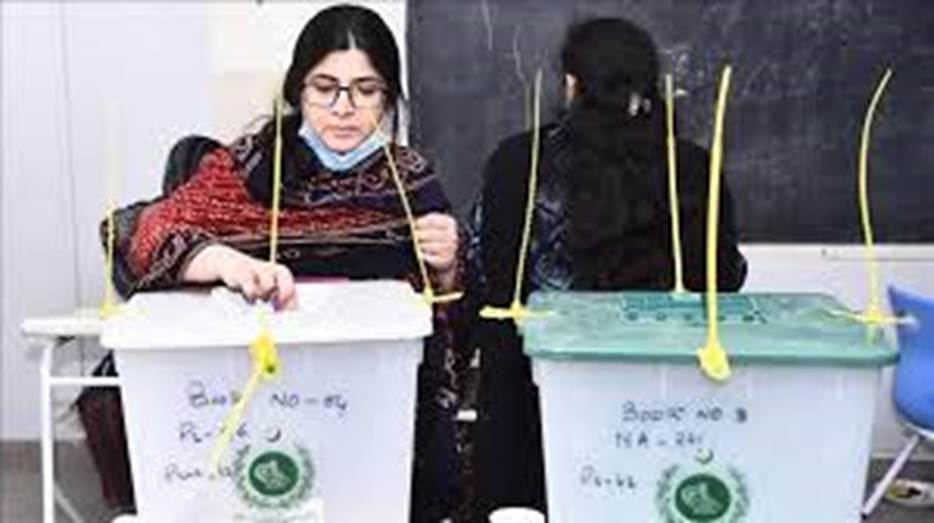
What Pakistan desperately needs is a strong government with a substantial mandate from the voters to fix things – Photo Anadolu Ajansi
Finally, Elections
By Nayyer Ali MD

The Election Commission of Pakistan has finally set a date for national elections; they are to be held by end of January 2024. This is a major delay as normally only a 90-day span should elapse once the current government has to step down and handover to a caretaker regime. But the caretaker government delayed the vote due to the approval of the latest census, stating that it needed extra time to set new constituency boundaries to accord with the latest census.
Pakistan has been in a political and economic crisis since early 2022, when the opposition parties were able to cobble together enough votes to bring down the PTI government of Imran Khan with a no confidence motion in the National Assembly. That should have led to immediate elections, but instead the opposition formed their own government and have held power since, only recently giving it up to allow for new elections.
Imran Khan was taken down by the military, who initially had supported him back in 2018 but now had soured on him. But this attempt to manipulate Pakistani politics was poorly played. With no good alternative and a bare majority, the only choice was to let Shehbaz Sharif become Prime Minister, even though he and his PML-N party were not popular with the country. The PPP under Bilawal Bhutto were even less in favor.
While Khan’s government had done a good job during COVID, avoiding the sharp economic decline that happened in India, and had restored Pakistan’s economy to 6% annual growth, the Sharif government was a total disaster. Economic growth slowed to zero in the last fiscal year ending June 2023, and was probably negative if the numbers hadn’t been fudged. Even worse, inflation under Sharif exploded from 10% to over 30%, while the Rupee collapsed in value. For a few months it looked like Pakistan might actually default on its foreign debt when the government was simply too weak to come to an agreement for new IMF loan.
Khan meanwhile has been hounded by the military through the court system. He has been accused on rather flimsy basis of corruption, and has been imprisoned for three years based on his disclosure of a diplomatic cable to the public that supported his claim that the US had pushed the Pakistani military to get rid of Khan. In reality, the US has not played any real role in the political ups and downs in Pakistan. Once the US gave up on Afghanistan, its interests in the region have shriveled to close to zero. Its only concern is that no bad actors ever get control of Pakistan’s nuclear arsenal, but beyond that, the US government has far more pressing issues it is focused on.
Languishing in prison, Khan is unable to run Prime Minister in the next election. But his political party is still on the ballot. There have not been any reliable public opinion polls in the last six months, so it is a guessing game who voters are favoring. The last public poll was done in April 2023, and at that time Khan’s PTI party was leading by large margins both nationally and in all the provinces, except for Sindh, where it was slightly behind the PPP.
My sense is that the urban educated and youth vote base that has been with Khan for the last ten years is still with him. Even without him on the ballot, the PTI is favored to win the next election, and if they do win, Khan will probably get out from under his ginned-up legal woes and enter the National Assembly through a by-election making him Prime Minister again within a year.
Pakistan has struggled economically ever since the Musharraf era. The PPP and PMLN governments were hobbled by incompetent policy-making and large-scale corruption. What Pakistan desperately needs is a strong government with a substantial mandate from the voters to fix things. If the PTI can win a big victory, they will have the chance to do this.
What Pakistan needs is good economic management. This means an independent central bank that keep inflation under control, an economic policy that stops wasteful subsidies and instead invests in education, health, and infrastructure, and consistent business-friendly policies that give investors confidence. Keeping the trade deficit and current account deficit under control is of huge importance. Pakistan needs to export a lot more and import less. Keeping a flexible exchange rate that is somewhat undervalued compared to a fair market price is vital. This will boost exporters while constraining imports of luxury and consumer goods.
Pakistan has come a long way in 75 years, but it needs stable consistent growth for the next generation to become a developed country. If it fails to do that, it will slip further behind its South Asian neighbors, who are not consumed with political conflicts.

